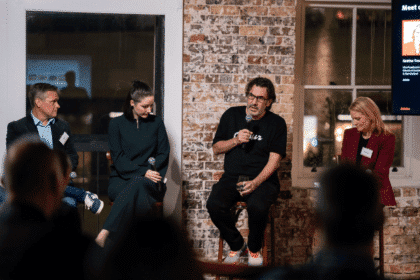Australia still holds its standing as “the lucky country” among Australians, with 72 per cent agreeing that it is, 15 per cent unsure, and 13 per cent saying it isn’t. But while most think they are lucky, people are divided on what that actually means.
The new The Australia Pulse study from strategic insights business Pollinate reveals what Australians define as a “lucky country”, with opportunity, access to basic needs, healthcare, the ability to get a job, safety, inclusivity, freedom from war, freedom to express views, and natural resources as the top themes among respondents.
The bi-annual survey, conducted in August this year, found that younger generations are more likely to have a positive outlook and agree that Australia is lucky, with 79 per cent of Gen Z and 75 per cent of Millennials agreeing versus 66 per cent of Boomers and 64 per cent of Gen X.
Overall, all respondents agree that the best things about living in Australia are lifestyle, living conditions and access to healthcare – and the worst thing is the cost of living.
For Boomers, Australia’s standing as a “lucky country” is underpinned by its lifestyle, living conditions, weather and climate, access to healthcare, natural landscape and the view that it is the land of opportunity.
For Gen X, it’s lifestyle, natural landscape, living conditions, access to healthcare, weather and climate
For Millennials, it’s lifestyle, living conditions, access to healthcare, weather and climate.
And for Gen Z, it’s access to healthcare, lifestyle, natural landscape, living conditions, weather and climate.
“The phrase ‘the lucky country’ was coined by author Donald Horne in 1964 and has been used ever since to describe Australia as a land of economic opportunity and bountiful natural resources. As it turns out, the majority of Australians still believe it’s the case, but it comes with some conditions,” said Pollinate chief executive officer, Howard Parry-Husbands.
“Overall, people are feeling lucky to live in Australia, but for very different reasons. The older generations still believe it to be a land of opportunity with a plethora of resources to exploit and opportunities to be had. This is very different to the younger generations, particularly Gen Z, who do not see the weather as beautiful but as a reminder of climate change”.
“Gen Z see the Australian landscape as lucky to enjoy but very threatened. They do not share the idyllic views of their seniors but believe a lot of our luck may have been squandered through poor governance resulting in a lack of opportunity that used to exist,” Parry-Husbands said.
The research uncovered clear intergenerational differences between Australians, including how they describe themselves and each other.
When looking at characteristics to best describe their own generation, Gen Z placed the most prominence on creativity and being open to change; Millennials mentioned being open to change and personal growth, and both Gen X and Boomers said hardworking and hopeful.
When being described by other generations, the research found that both Gen Z and Millennials are seen as seeking creativity and being open to change; Gen X as hardworking and seeking security; and Boomers as keeping social order and focused on tradition.
“This year’s The Australia Pulse study shows the generational tensions that have surfaced, and with it some strong lessons and opportunities for brands,” said Pollinate research director, Kirsty Bloore.
“All generations consider themselves to be the luckiest, with Gen Z stating technological advancements as their positive reason for being lucky. For both Millennials and Gen X, it was because they grew up in simpler times, and for Boomers, it was the cost of living”.
“In terms of perceptions, Gen Z’s anxiety and cynicism is widely acknowledged, but their lack of hope is not as well recognised. Will Millennials – who think they are compassionate and hardworking – be shocked to hear they are seen as entitled, excitement-seeking achievers? Will Gen X be surprised to find they are seen as conservative and traditional, not open-minded like they believe? And will joy-seeking Boomers care that they are considered self-protecting conservatives? Brands and marketers need to understand that how generations
perceive themselves is a lot different to how they are perceived,” Bloore said.
The research was conducted in August this year and covered 1,000 people aged 14 to 64 across Australia. The sample was representative of the general Australian population.
Pollinate is part of the fast-growing independent marketing business, The Influence Group, which also owns Social Soup, the largest influencer marketing business in Australia and New Zealand.








